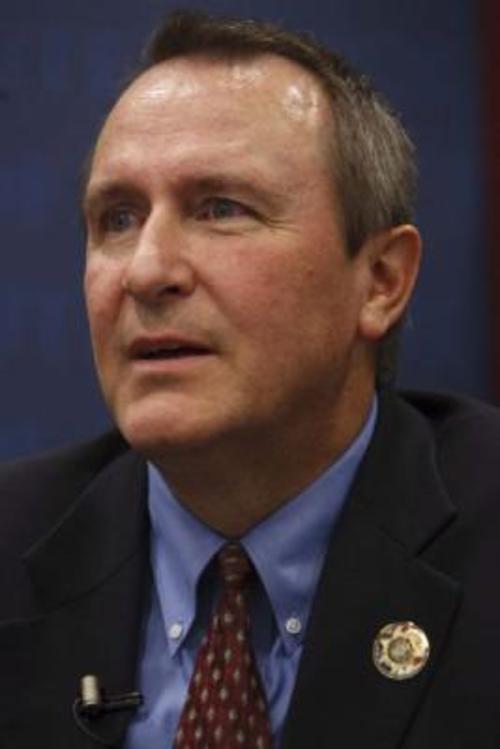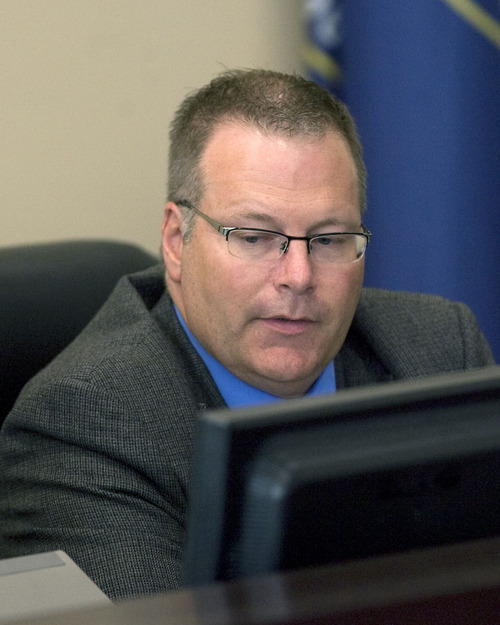This is an archived article that was published on sltrib.com in 2011, and information in the article may be outdated. It is provided only for personal research purposes and may not be reprinted.
Utah's practice since statehood of electing an attorney general may be in for a change.
Sen. Stephen Urquhart, R-St. George, wants lawmakers to study changing the Utah Constitution to allow the governor to appoint the top law enforcement officer, in part to avoid the appearance that campaign contributions can affect prosecutorial decisions.
"The feds do it and it seems to make sense," Urquhart said.
It would ensure that the attorney for the state agrees with the executive when it comes to policy and legal decisions.
"I also think it's much cleaner if the guy making prosecutorial decisions isn't out soliciting money from people who could be impacted by those decisions," Urquhart said.
Utah Attorney General Mark Shurtleff said he has seen the idea of appointing an attorney general come up before — usually raised by the governor — and he thinks it would be a mistake, gutting the independence enjoyed by a chief law enforcement officer who answers only to the voters.
"It's a lousy idea and I'll fight it vigorously," Shurtleff said. "I'd have concerns that if the governor appoints, [the attorney general] becomes more of a corporate counsel. They lose that independent watchdog role the AG has."
Forty-two states elect their attorney general, while nine, including the District of Columbia, have the office appointed. Utah's attorney general has been elected since A.C. Bishop was chosen as the first attorney general in 1896.
In 2000, then-Gov. Mike Leavitt, a Republican, pushed to strip then-Attorney General Jan Graham, a Democrat, of the ability to file civil suits on behalf of the state. Eventually, an agreement was negotiated for the attorney general to consult with the governor on civil matters.
Urquhart has asked the Legislature to study the change over the summer, and the issue has been assigned to the Government Operations and Political Subdivisions Interim Committee. He said he understands the arguments for and against the change.
"I think the horns of the dilemma is this would disenfranchise the people on this specific election," Urquhart said. "That is contrasted with the idea of, well, maybe we would get a better-qualified attorney than we tend to get and we might get an attorney … with an approach that is consistently on the merits of the issues rather than on the basis of politics or something else."
It is not the first time that Urquhart and Shurtleff have not seen eye to eye.
In 2009, Urquhart told investigators from the IRS, FBI and U.S. Attorney's Office that he suspected that Shurtleff was "selling fire insurance" by declining to prosecute big campaign donors.
The investigators' notes were filed in federal court as part of a case involving Rick Koerber, a Utah County businessman under federal indictment for allegedly running a multimillion-dollar Ponzi scheme.
Shurtleff said at the time he was outraged by Urquhart's claims and called it "unethical" and "irresponsible."
The attorney general said he thinks Urquhart's latest move is motivated by the personality clash, but Urquhart said that even if the proposal goes forward, it wouldn't take effect until the 2016 election, and Shurtleff would be out of office by then.
Shurtleff, who is undergoing cancer treatments, said previously that he didn't plan to seek re-election. But he said this week that he is preparing to file a lawsuit against the college football Bowl Championship Series, has been spending considerable time on Utah's immigration reform, and wants to see more progress in his outreach to polygamist communities.
That may motivate him to run for a fourth term, which would put him in office until 2016.





